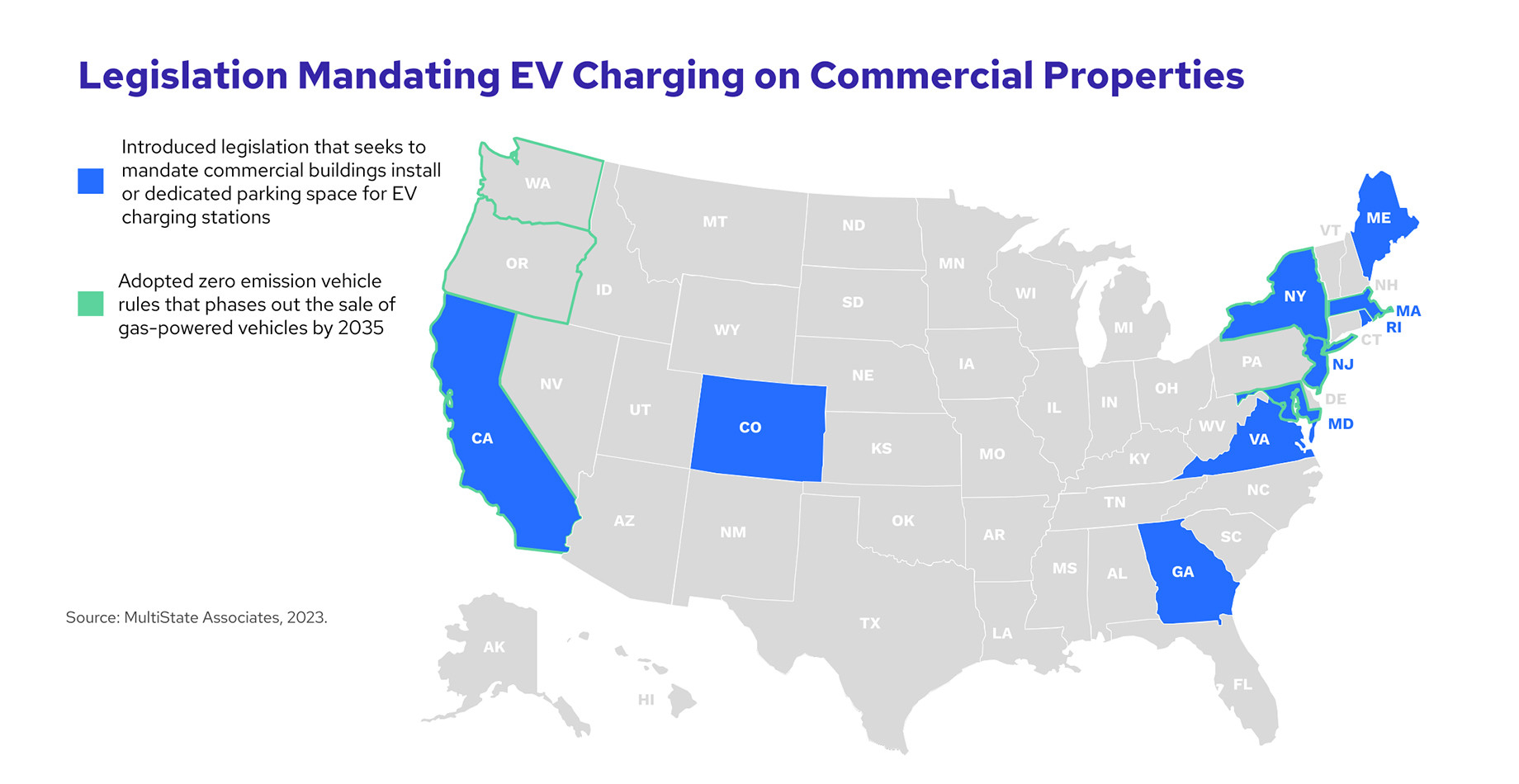As billions of federal dollars begin to flow to states to build out a nationwide electrical vehicle (EV) charging network, some lawmakers are introducing additional measures that will speed up the transition to all-electric roadways. This week, the Biden administration announced a set of proposed rules that could lead to as many as 67% of cars and trucks sold being all-electric by 2032. The move comes as state lawmakers, from predominantly blue states, introduce dozens of bills this year to mandate the inclusion of EV charging stations on both residential and commercial properties.
The Colorado Legislature advanced legislation (CO HB 1233) this week, closely along party lines, that prevents commercial landlords from restricting parking spaces based on whether a vehicle is electric. In addition, the bill would permit commercial tenants to install Level 1 or 2 charging stations on leased premises. Bill sponsor Rep. Alex Valdez (D) said on Twitter that the bill is intended to meet the state’s climate goals and bridge the gap in charging accessibility.
In Virginia, the State Senate passed legislation (VA SB 1312) that would allow cities to require EV charging stations as part of their approval process for commercial properties. While the bill passed largely on partisan lines, it ultimately died in the Republican-controlled House.
Most of the legislative activity concerning commercial properties, though, has been through measures that would require new and existing buildings to include a certain number of parking spaces reserved for EV charging ports. Legislation introduced in Georgia (GA SB 72), Maine (ME LD 524), Massachusetts (MA SD 1429 & MA HD 2279), New Jersey (NJ SB 3490 & NJ AB 5124), New York (NY SB 1736, NY AB 3780, NY AB 1122 & NY SB 110) and Rhode Island (RI HB 5159) would require commercial buildings to reserve a certain amount of parking for EVs. For example, the two Massachusetts bills would require 10% of any new parking at commercial buildings to be “EV-capable” spaces.
Bills introduced in New York (NY SB 1479) and Maryland (MD HB 889) go as far as mandating that newly-built gas station pumps have a certain number of EV charging stations installed as well. Legislation proposed in California (CA AB 1614) would even require the state to study how to phase out gas stations by a specified date. While these bills are rarely acted on, they illustrate the push by some lawmakers to accelerate the adoption of plug-in electric vehicles.
